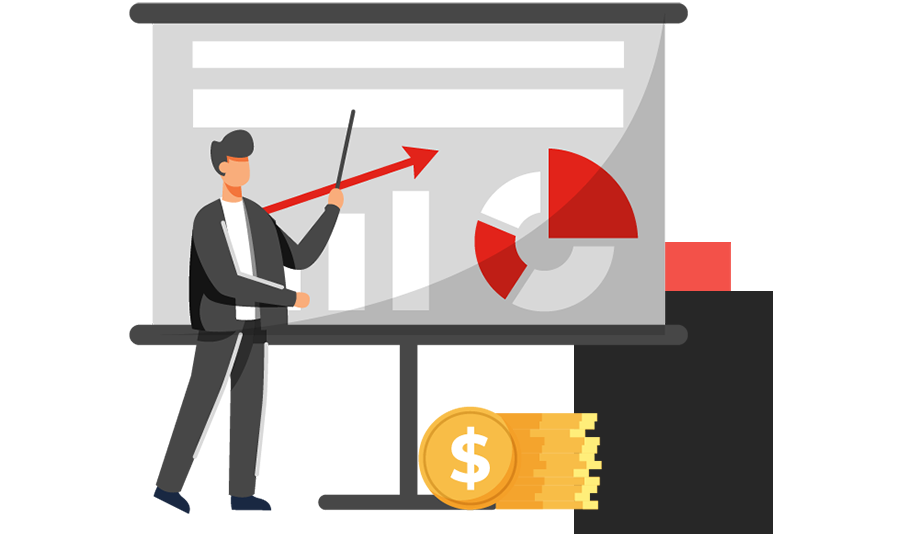Unless it’s time to pay your taxes, taxes aren’t the first thing on your mind. If you’re like most business owners and investors, you occasionally feel helpless in the face of taxes. You start to worry that you’re making a mistake, putting your confidence in the incorrect person, or spending a lot of money.
Whatever your circumstances regarding business or investments, a tax strategy is a plan of action for lowering taxes. There’s more to it than just wishing taxes were lower. It is a plan designed to ensure that you pay the least amount of tax permitted by law while upholding moral and ethical standards.
Earned income is subject to additional levies to fund programs like Social Security and Medicare, to mention a few. Income is taxed at the federal, state, and municipal levels. Taxes are challenging to avoid, but there are numerous ways to do it. Here are six strategies to keep your income tax-free.
Your business income and personal spending are best organized through tax planning. It examines the impact of your business structure on payroll and income taxes, the tax-deductible expenses, and the most effective ways to help the people and causes that are important to you.
A long-term plan for your financial and professional future is a tax strategy. For this reason, you should plan your tax approach for years, if not decades, in the future.
The complexity of the tax system increases the importance of tax preparation tactics. Incomprehensible concepts like liabilities, deductions, and financial strategies for safeguarding assets and setting money aside for the future may be complex for first-time taxpayers to comprehend.
Fortunately, investing a little time in creating tax preparation methods has several advantages in addition to tax savings. The method makes it easier for people and small enterprises to handle their money, lowering overall capital outflow and putting more money in their pockets.
Creating a Tax Strategy
Visualize your Results
Where do you currently stand, and where do you see yourself going? What does financial independence mean to you? Most of our clients discover that by asking themselves these questions, they may forge a path they previously believed unattainable.
Your wealth vision will be created through this goal-setting approach. Why is that crucial? Your future facts are shaped by the objectives you have for your wealth, including your business and investments. These facts serve as the cornerstone of your wealth strategy and significantly impact your tax approach.
Boost your retirement savings while lowering your taxed income.
Your taxable income may be reduced due to some of the most popular investing and saving choices, such as contributing to a company retirement plan. That is true regardless of whether you itemize deductions on your tax return or use the standard deduction.
Depending on your salary and if you or your spouse were qualified to contribute to a workplace retirement plan, contributions to a regular IRA may be tax deductible. Even if you weren’t eligible in prior years, checking each year is crucial. Changes in your income tax situation may impact your eligibility.
Roth IRA, Roth 401(k), and Roth 403(b) contributions do not lower your taxable income, but withdrawals made in retirement are tax-free. Due to the possibility that the present lower individual income tax rates will end after 2025, you might discover that your current tax rate is lower than it will be in the future, making tax-free income from your Roth account advantageous for you in the long run.
Entity guide
It’s time to thoroughly examine your current ownership structure to see what has to be changed regarding taxes and asset protection. Remember: You must modify your facts if you want to change your tax.
Finding current information on your business and income organization is the first step in developing a strategy. You will be able to create specific and doable goals if you are aware of how your company fits within the regulatory frameworks of federal, state, and local agencies and how tax laws affect your wealth and bottom line.
Take a fresh look at itemizing your deductions.
The basic deduction was raised by recent tax reform, while several types of itemized deductions were restricted. It is anticipated that these changes will result in a significant decline in the number of taxpayers who itemize their deductions. However, you can decide to make more deductible purchases so that itemizing yields a tax advantage.
A donor-advised fund is another method for doing this. An easy-to-create charitable investing account is a donor-advised fund. Donor-advised funds allow you to donate assets (and perhaps deduct a significant amount) in the current year without having to donate those assets to your preferred charitable organizations until later.
Don’t limit the consideration of your tax approach to tax efficiency. The time is right to review your financial strategy. You might discover that recent market action has altered your asset allocation or retirement readiness. Additionally, you might consider how well-prepared your entire portfolio is to withstand market swings.


Recent Comments